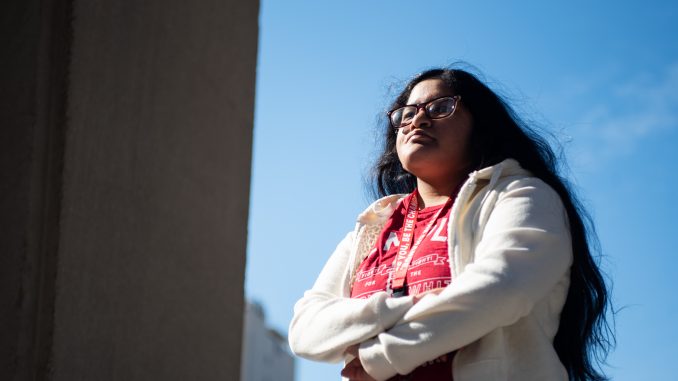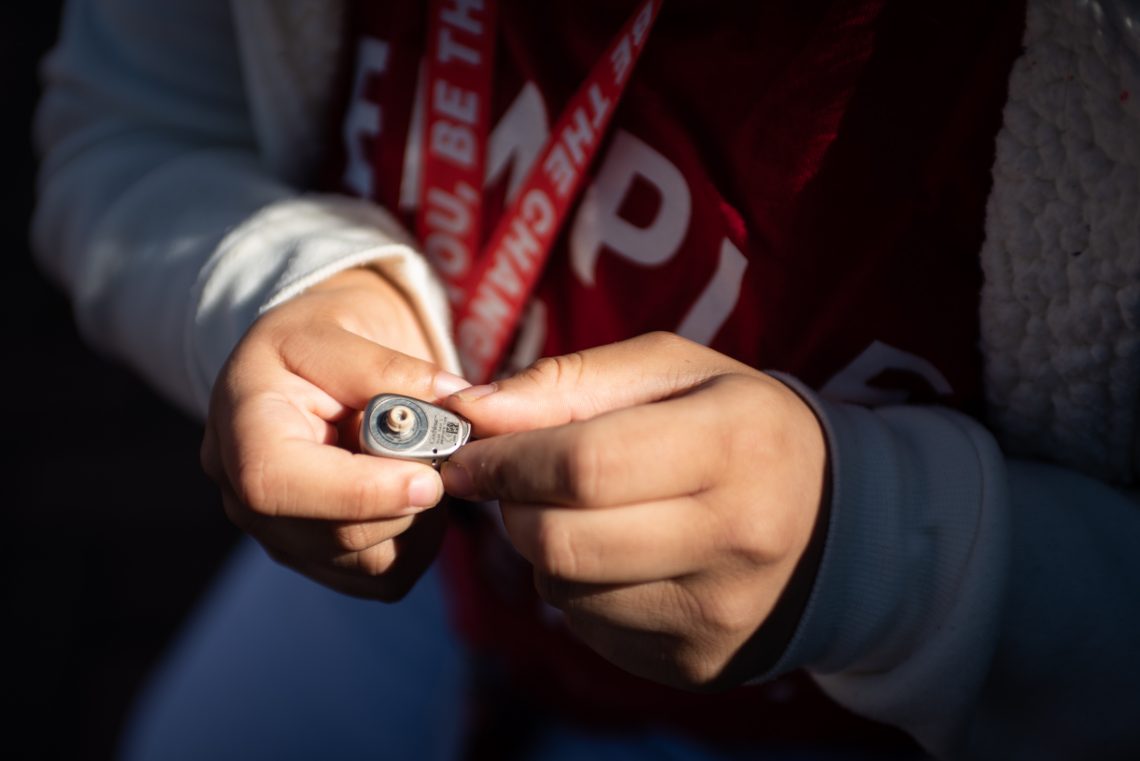
“And the Academy Award goes to…”
“Oh my god!” on cue, Nayeli Perez-Peralta screamed.
When South Korean thriller “Parasite” made history as the first international feature film to win the Academy Award for Best Picture, many credited it for breaking down language barriers in Hollywood, AP reported.
But for Perez-Peralta, a freshman film and media arts major, the win represented a victory for diversity in all forms.
At birth, Perez-Peralta was diagnosed with Goldenhar Syndrome — a rare, craniofacial syndrome that causes abnormalities like a deformed or missing ear, leading her to experience single-sided deafness in her right ear. She rarely recognizes any on-screen role models who look like her, she said.
But as she begins to pursue a film career at Temple University, she hopes to be a role model for younger girls, who are interested in the industry.
The National Association of the Deaf urges representation of deaf or hard of hearing people in film, television and theater to accurately portray “the rich tapestry of deaf and hard of hearing individuals in an accurate and authentic manner,” according to their website.
This year, Perez-Peralta won the 9th annual Cochlear Anders Tjellström Scholarship, which offers grants of $2,000 each year for up to four years for students who use Cochlear devices and demonstrate high academic achievement, leadership and humanity. She was one of eight winners and 111 applicants.
Perez-Peralta became interested in film by making fan accounts for dance bands and making her own mashup videos. She chose to come to Temple as a nearby university to her home in Olney to explore career possibilities in film, and is now interested in directing.
“I never really thought I would graduate high school, not as a bad thing, I just couldn’t picture the future,” Perez-Peralta said. “I feel really happy to afford college, to get accepted to college, to meet new people and focus on what I want to do.”
Getting the scholarship lifted a financial burden off both her and her mother, as they’ve made financial sacrifices in the past for her medical treatment, like the 14 surgeries in her youth as a result of her syndrome, Perez-Peralta said.
In addition to the physical toll these procedures had on her body, Perez-Peralta formerly saw her differences as a burden to her peers, she added.
“When people see me, I feel like they don’t want to bother speaking to me because they might think I might not have the same intellect, intelligence as them, that I’m ‘special,’” Perez-Peralta added.
Growing up, Perez-Peralta’s deafness challenged her ability to focus in school. If she wanted to retain lessons, she had to be constantly alert.
“I had to pay attention,” Perez-Peralta said. “I would get really upset if people were talking louder than the teacher. It was really hard. I would stay after class to make sure I knew what was taught … If I distracted myself, I would lose the lesson for the day.”

Since she was 13, she has worn a bone anchored hearing aid, a surgically implanted device designed for people with single-sided deafness, manufactured by Cochlear, a medical device company.
BAHA devices conduct sound through bone vibrations rather than air, used in a typical air-conduction hearing aid, according to Cochlear.
Perez-Peralta recalled the exact moment when her audiologist fastened the device behind her newly constructed ear and listening to the five beeps that sounded, when suddenly, everything felt loud.
“I could’ve sworn I could hear everything around me,” she said. “It felt like I entered a new universe. It felt cool. I could’ve sworn I heard footsteps from down the hallway. I thought I had superpowers.”
People with hearing impairments can experience auditory fatigue from straining to listen to conversations or experiencing overstimulation from background noises picked up by hearing aids, said Stacy Phillips, communication services coordinator at Temple’s Institute on Disabilities.
“They’re getting so much information all the time that it can be overwhelming,” Phillips said.
Hearing loss makes everything harder, said Laurie Mauro, the lead audiologist for bone conduction at the Children’s Hospital of Philadelphia.
“[Perez-Peralta] doing well, despite her having hearing loss, is because she’s really gone above and beyond what she thinks is just acceptable to get by,” Mauro added.
As she continues to pursue her career in film, Perez-Peralta plans to add diversity to roles in her films and trailblaze the way for people like her.
“I’m pretty good at what I do,” Perez-Peralta said. “I’ve got good grades. I’m pretty relatable if you get to know me. Obviously I have a loss, but that doesn’t define me.”
CORRECTION: A previous version of this story incorrectly stated that the 9th annual Cochlear Anders Tjellström Scholarship had 189 applicants. It had 111 applicants.



Be the first to comment